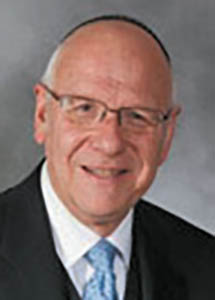
Parshat Vayishlach
Although this morning’s parsha describes the long-awaited reunion and rapprochement between Esav and Yaakov, it also indicates that there seems to have been very little subsequent relations between the two. They part amicably, but they part. Except for the cooperative burial of their father, Yitzchak, we never read any experience that they shared. It is this very point that leads to the prophecy of Ovadiah, the shortest book of nevuah in the Tanach, that makes up today’s haftarah. By the time of Ovadiah, Esav’s nation of Edom had no positive relations and exhibited no brotherly love toward Jacob’s descendants. In truth, they had become an enemy of the Israelite people, and the navi’s prediction of the harsh punishments that would befall Edom are, in no small part, due to the fact that Edom was a brother and should have reflected that relationship in their behavior toward Israel.
Indeed, the enmity displayed by Edom to Yisrael was so intense that they became the very symbol of every enemy of Israel, something to which Ovadiah hints when, while speaking of Edom, he includes the punishments awaiting “all the nations” who opposed Hashem’s chosen people. In fact, when we study the prophecies of Yirmiyahu, Amos and Yechezkel, we find that the name “Edom” is often used as a general term for the foes of Israel—even those who, according to some commentaries, tormented Israel during the Second Temple when the nation of Edom no longer existed!
I imagine that this division between the nations was not unexpected, given that the blessing of Yitzchak to Esav stated that the two future nations would never rule at the same time but would, rather, dominate or be dominated by the other. In light of this, we better understand the reason why Edom became the symbol of all Israel’s enemies, for the success of Israel would only come with the weakening, and eventual destruction, of “Edom.”
And yet Chazal are adamant in stating that this destruction could be avoided if Edom changes her ways and treats Israel with kindness and compassion—as a brother would. Understanding the words of our rabbis helps us remember that repentance is not limited to the Jewish nation alone. A return to a noble and moral lifestyle would bring blessing to all who embrace it. This is the way of God and must be our way as well.
By Rabbi Neil N. Winkler










